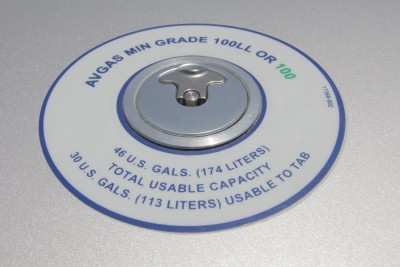Mon, Jun 17, 2013
Actively Seeking Partners to Join The Effort
The National Research Council of Canada (NRC) is launching a concentrated research effort to find an appropriate high octane gasoline alternative for 100LL (low lead) aviation gasoline (AVGAS). NRC is actively seeking partners and collaborators to join this effort to ensure the long-term viability of the general aviation industry.

“As part of its ‘Clean Air Agenda,’ the Government of Canada is committed to finding ways to reduce airborne pollutants that result from air transportation,” says Jerzy Komorowski, general manager of NRC Aerospace. “To achieve these reductions, we must find a suitable unleaded aviation gasoline alternative to ensure the long-term viability of the piston-powered aircraft, which is commonly used in general aviation.”
“Analysis of NRC’s world-first civil flight powered by 100 percent biofuel revealed 50 percent reductions in aerosol emissions compared with conventional jet fuel,” says Komorowski. “These are positive results, and we hope to build on them with this new research effort. It is a natural progression that NRC continues alternative jet and aviation gasoline fuels research for the general aviation market.”
General aviation represents all aviation other than military and commercial airline applications. For those communities without scheduled air service, primarily in rural and northern Canada, general aviation is the primary air transportation of passengers and cargo. These flights are conducted by twin-engine aircraft with high compression piston engines requiring a minimum of 100 octane fuel. Unfortunately this fuel is the only one in widespread use still containing lead, a toxic metal that accumulates in the human body and can have neurotoxic effects.

The general aviation industry views the availability of an appropriate high octane alternative to 100LL AVGAS as a critical need. Research focus is required on 100LL alternatives to ensure a safe transition to any new fuels in Canada's unique operating environment. At present, there are two lower lead content/octane certified fuels available and three experimental alternative fuels being proposed by various fuel manufacturers. NRC is interested in investigating the viability of these fuels and can provide recommendations for the development and deployment of a qualified replacement fuel.
More News
Aero Linx: Florida Antique Biplane Association "Biplanes.....outrageous fun since 1903." That quote really defines what the Florida Antique Biplane Association (FABA) is all about.>[...]
Beyond Visual Line Of Sight (BVLOS) The operation of a UAS beyond the visual capability of the flight crew members (i.e., remote pilot in command [RPIC], the person manipulating th>[...]
Also: ForeFlight Upgrades, Cicare USA, Vittorazi Engines, EarthX We have a number of late-breaking news highlights from the 2024 Innovation Preview... which was PACKED with real ne>[...]
“For Montaer Aircraft it is a very prudent move to incorporate such reliable institution as Ocala Aviation, with the background of decades in training experience and aviation>[...]
Maximum Authorized Altitude A published altitude representing the maximum usable altitude or flight level for an airspace structure or route segment. It is the highest altitude on >[...]
 ANN's Daily Aero-Linx (04.13.24)
ANN's Daily Aero-Linx (04.13.24) ANN's Daily Aero-Term (04.13.24): Beyond Visual Line Of Sight (BVLOS)
ANN's Daily Aero-Term (04.13.24): Beyond Visual Line Of Sight (BVLOS) Airborne 04.09.24: SnF24!, Piper-DeltaHawk!, Fisher Update, Junkers
Airborne 04.09.24: SnF24!, Piper-DeltaHawk!, Fisher Update, Junkers Aero-News: Quote of the Day (04.14.24)
Aero-News: Quote of the Day (04.14.24) ANN's Daily Aero-Term (04.14.24): Maximum Authorized Altitude
ANN's Daily Aero-Term (04.14.24): Maximum Authorized Altitude




